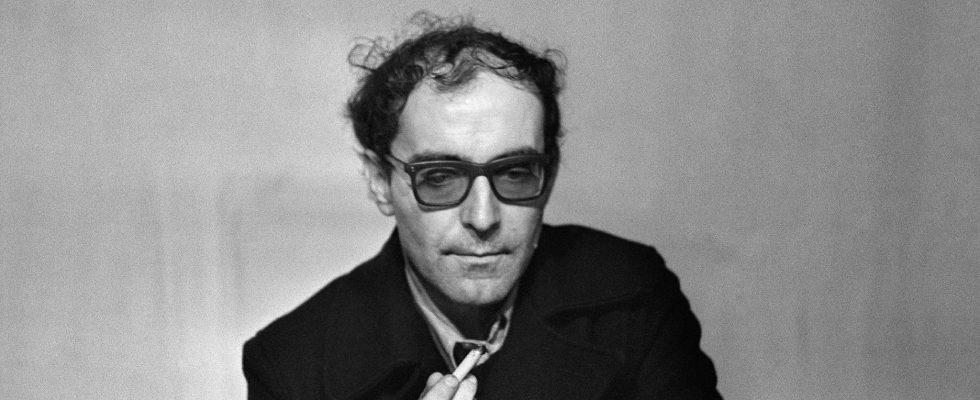At the idol market, if Jean-Luc Godard is not the best-selling product, he is one of the most singular. We don’t really know what we still admire in “the dumbest of the Swiss pro-Chinese”, it’s not even certain that we’ve ever really admired him. And as for loving him, the answer is not simple either, because he has striven, throughout his career, never to respond to what his thurifers expected of him. He even did everything to discourage them, reduce their number, going so far as to surrender, from film to film, more inaudible, trying, and unwatchable. Therefore, what is its reputation, what is its notoriety made of?
Two three shots, four or five lines in his first films, a few good words in press conferences, during which the laughter they triggered, like trout leaps out of the torrent of boredom, was more like a sigh of relief what great hair. After the comedians, making good use of his imitable hissing Swiss accent, had assured him of a fine career as a comedian, the critics offered him, dead, what they had guaranteed him during his lifetime, an excellent press. That is to say bloated, exaggerated in both directions.
Eight months after his suicide, one of his fans, cartoonist Philippe Dupuy, pulls out of his drawers a project for an album which he titles I would have liked to see Godard (ed. Futuropolis). Not having been able, of course, to meet him in real life, Dupuy invents this mythical meeting, in Rolle, in Switzerland, on the shores of Lake Geneva, where the filmmaker resided cloistered. The quasi-Socratic exchange, on board a boat, does not teach us much, like everything that emerges from the imagination. Nothing on Godard. But on Dupuy, a little more. The idea for this album, before retorting it, had come to him from a statement by JLG published in his Introduction to a true history of cinema: “I would like to know how to draw, not even skillfully like cartoonists, without talent, but to draw more or less correctly, to draw something, I think I would use it a lot.” Dupuy, as a betrayed lover, had taken the fly: how does that “without talent”! But Godard will not answer for this insult. Not even in imagination, because even in imagination, in the boat sailing on Lake Geneva, Dupuy does not dare to reproach him for anything.
Godard would only be the mirror of those he fascinates
Dupuy admires Godard for his freedom, his audacity, his way of not making conventional films, of breaking the codes, as the boss of LVMH says, who admires the great artists who break the codes… by customizing the handbags of his brands. . Faced with JLG’s silence, Dupuy attempts mimetic appropriation: becoming as crazy and stuffed with references to art history as a Godard film. Fortunately, Philippe Dupuy, whose talent we know (My dad draws naked women, here even covered with praise), does not manage to be as boring as his master in transgressions, it is stronger than him, he must tell a story, entertaining enough for readers who have been following his tasty adventures of author in search of adventures.
In 1967, Philippe Garrel, then aged 19, made a documentary for the ORTF, Young Cinema: Godard and his followers. Among the latter, questioned about their relationship to the master, Jean Eustache says that he made his last film with the scraps of virgin film from Male Female. Barjol, for his part, believes that we should kneel down in front of Godard’s films, and that the right to enter a cinema should be prohibited “before having watched four times in a row The Carabinieri”. Goupil, who is not 16, accuses the director of The Chinese to have “betrayed Marxism-Leninism” and “recovered the irrecoverable: the revolution!”
Godard would therefore only be the mirror of those he fascinates, sending back to them the image and the sound of the ridiculousness of their passion.
